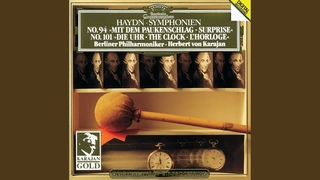Joseph Schmidt - Nessun dorma
Joseph Schmidt (1904-1942) was born in the Romanian town of Davideni. He began his vocal studies at the Czernowitz Synagogue, where he sang alto in the choir. His first public appearance as a tenor took place in Czernowitz in 1924 when the twenty-year-old Schmidt sang a solo recital of operatic arias and songs. The young tenor made his way to Berlin where he studied with Hermann Weissenborn for the next few years. Schmidt’s operatic debut came about in a rather strange fashion…he answered a newspaper ad placed by a Berlin radio station that was seeking a tenor for an upcoming broadcast. Following his audition, Schmidt was hired on the spot and sang his very first operatic role…Vasco da Gama in Meyerbeer’s L’Africaine…during a national radio broadcast of the opera in 1929. Other roles followed, including Rodolfo in La Bohème, Eleazar in La Juive and the title role in Mozart’s Idomeneo, but these were all performed over the airwaves and not on the operatic stage. At four feet, eleven inches in height, Joseph Schmidt was simply too small to realize a full-fledged operatic stage career. Luckily, there were other avenues open to the diminutive tenor…radio, concerts, films and recordings…and he was able to enjoy a lucrative career as a singer.
It is interesting to note that Joseph Schmidt, an Orthodox Jew, was able to build such an extraordinary career during the rise of the Nazi Party. He was a renowned artist, known as “The German Caruso” throughout Europe, and was particularly popular in Belgium and the Netherlands. Schmidt made a successful tour of the U.S. in 1937, where he picked up the amusing (albeit unflattering) nickname, “The Pocket Caruso”. His films, such as Der Liebesexpress, Gehetzte Menschen, Ein Lied geht um die Welt (My Song Goes Round the World) and Ein Stern fällt vom Himmel (A Star Fell From Heaven) were enormously popular in both the German and English speaking worlds. However, once the Nazis became firmly established, Jewish artists were prohibited from working in Germany. Schmidt was no exception to the rule. His films were banned. His recordings were destroyed by the hundreds. Booking agents were prevented from hiring him for concerts and other personal appearances. When it became obvious that his very safety was in jeopardy, Schmidt attempted to flee to the U.S. He booked passage on a ship bound for Cuba, but when he arrived at the dock, Schmidt learned that an anonymous passenger had forged documents in his name and had stolen his reservation.
Joseph Schmidt attempted to make the best of a bad situation. After war broke out in Europe, he escaped to Belgium, where he took up residence in Brussels. He remained there until the Nazi occupation began in May of 1940. Once more, Schmidt was compelled to move and lived in France from 1941 until the summer of 1942. Although he was living a somewhat transient existence during this period of his life, Schmidt continued to receive offers, including one from Sol Hurok’s agency in New York, who wished to represent the tenor in a series of U.S. appearances for the 1940/41 season. The situation in Europe made it impossible for Schmidt to consider such offers and, sadly, they all came to naught. In the meantime, attempts were made by the tenor’s friends to enlist the aid of music and arts societies around Western Europe. These efforts were made not only to secure much needed income for Schmidt but also to find a safe haven from Nazi persecution. Ironically, Schmidt’s final public appearance was a benefit concert for war refugees given in Avignon, France on May 14, 1942.
By the fall of 1942, life in France had become dangerous. Deportations of Jewish citizens were becoming commonplace and, with little more than the clothes on his back, Schmidt made a desperate run for the Swiss border. He was captured at Girenbad, near Zurich, and placed in a refugee camp in October. Desperately ill and possibly suffering from tuberculosis, the tenor was placed on a work detail which sapped his remaining strength. After a brief stay in a local hospital, Schmidt suffered a heart attack on November 16 at a nearby inn and died shortly thereafter. He was only thirty-eight. He is buried at Friesenberg Jewish Cemetery near Zurich. Inscribed on his headstone is “Ein Stern Fällt” …” A Star Fell”.
Despite the tragedy of his life and the almost total lack of a stage career, Joseph Schmidt is recognized today as one of the truly great tenors of the 20th Century. His recorded legacy displays a voice of amazing range and flexibility, a flawless technique and impeccable artistry and taste. Here, Schmidt gives a stirring rendition of “Nessun dorma“ from Puccini’s Turandot. This recording was made in London for the Odeon label in 1934.











![Combichrist - CMBCRST [Full Album]](https://sun9-41.userapi.com/X8EQn8MTvkDmjSEXQO_kcM84kR8PO3SzyZX8OA/qoZ8juwsqdI.jpg)











